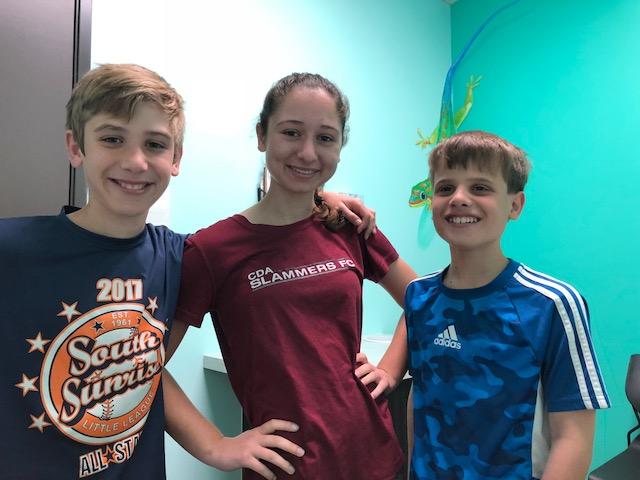Sports physicals offer golden opportunities to share information and listen to young patients.
Sure, they frequently are viewed by parents and young athletes as more annoyance than necessity.
It’s easy for sports physicals to turn into automatic answers to a list of questions.
Those long checklists on sports medicine forms makes it easy to simply answer ‘no, no, no’ to everything.
(Spoiler alert: Look for shorter checklists coming soon- complaints from athletes and medical providers have been heard)
Many sports physicals are nothing more than a quick check of vital signs followed by a brief exam.
After that, the athlete is out the door with a signed permission slip for another year of organized activity.
I definitely understand why families may favor quick sports physicals.
They might not have a regular medical provider, and after-hours/drop-in access with low initial costs can be very attractive.
Sports physicals don’t have to be … and really shouldn’t be … this way.
You can get a form checked off, or you can get a valuable check-up.
If we, your trusted medical providers, can up our sports physicals game, we can make your game so much better.
There are a host of things to look at, both with general medical and sports- specific issues.
Every time we get to sit down with a family is a chance to provide valuable education.
Medical types call this focus on injury prevention and risk reduction “anticipatory guidance”.
Athletes and families can look at it as an investment in not only fixing current problems, but also trying to reduce future issues.
Yes, comprehensive sports physicals take more time, but investing in a visit with your trusted medical provider can pay off big dividends.
Sports Physicals: Taking the Time to Value Add to Your Performance
Concerned about eating right to gain weight and get stronger?
Not sure what are the best choices between games over a long weekend tournament?
Heard about some teammates using supplements? Not sure if you should use them?
A proper sports physical will discuss sports nutrition to make a more informed athlete.
- CLICK HERE FOR RELATED TOPICS:
Are you a soccer player hearing that you might have a higher risk of knee injuries?
Want to reduce your risk of shoulder or elbow problems in baseball?
Get the time to learn about valuable injury reduction tips and programs during sports physicals.
- CLICK HERE FOR RELATED TOPICS
Sports Physicals: How Knowing Your Past can Better Your Future.
Let’s start with your past history.
We can look at past medical records including a growth scale to see if there’s been too little or too much growth. Can see if shots are up to date.
We might know things about you that you may forget or not want to admit.
Checked “no history of asthma” on that long checklist?
Yet your record shows that asthma flare-up from a few years ago.
Knowing about the past asthma is actually a good thing.
It allows better chances to make medical recommendations to get things under control.
Can’t tell you how many times some minor tweaks in asthma care have given athletes more endurance, speed and ability to star on the field.
However, if your provider doesn’t know about you and your asthma, then they can’t offer the same level of help.
Suffered 2 past concussions?
Parents concerned about continuing to play contact sports?
This is where sports physicals that take the time to cover school grades, future goals, friendships, and mood can help make the best decision.
These are just two benefits of going to a provider who knows you and your history.
- CLICK HERE FOR RELATED CONTENT
Sports Physicals: An Important Time to Listen
Sports physicals are time to have an open dialogue about alcohol, drugs and mental health issues.
This discussion definitely takes time and might be best done one-on-one between athlete and medical provider.
Indeed, some athletes may be embarrassed or not want to admit any problems.
If they are going to open up and talk, probably most likely to be to someone that they already feel comfortable sharing such sensitive information.
Allowing the chance to ask questions and simply listen to the answers can be a healthy start.
Many adolescents- athletes and non-athletes- feel overwhelmed, anxious, depressed or out of control with alcohol and drug use.
If we providers can be a better job of asking, listening, and addressing these issues, we can make a big impact in the the lives of our patients.
Sports physicals might be the one time a year where we get to sit down with athletes and families to cover some important stuff.
This isn’t just checking off a box- it is a important and valuable check-up.


